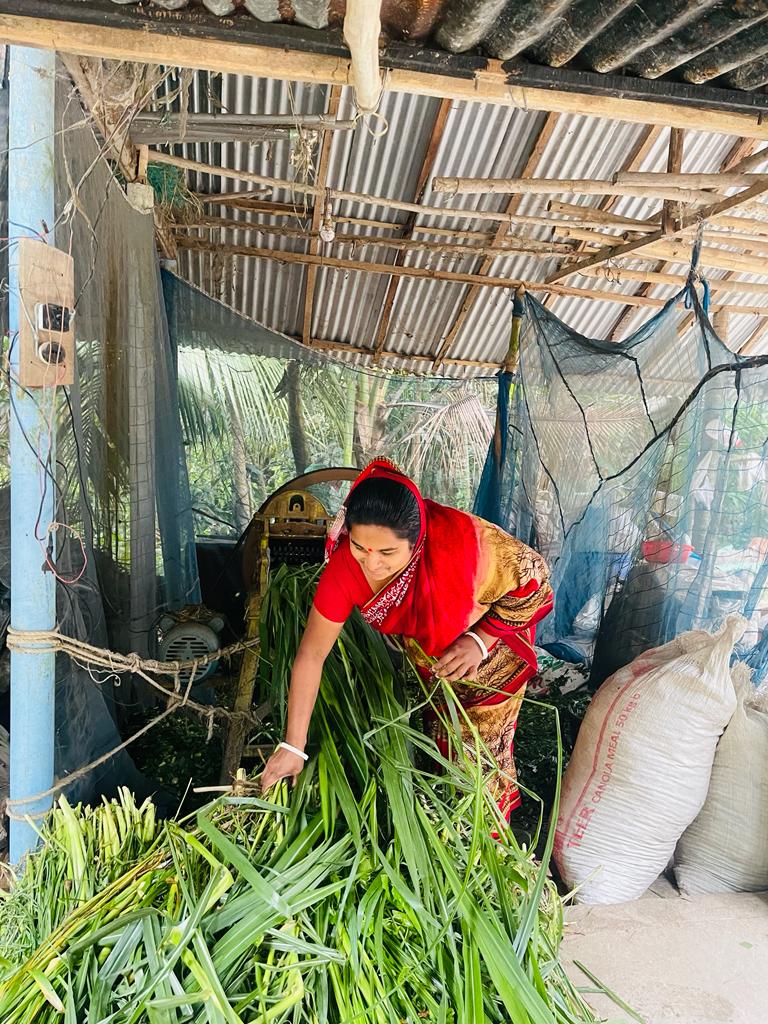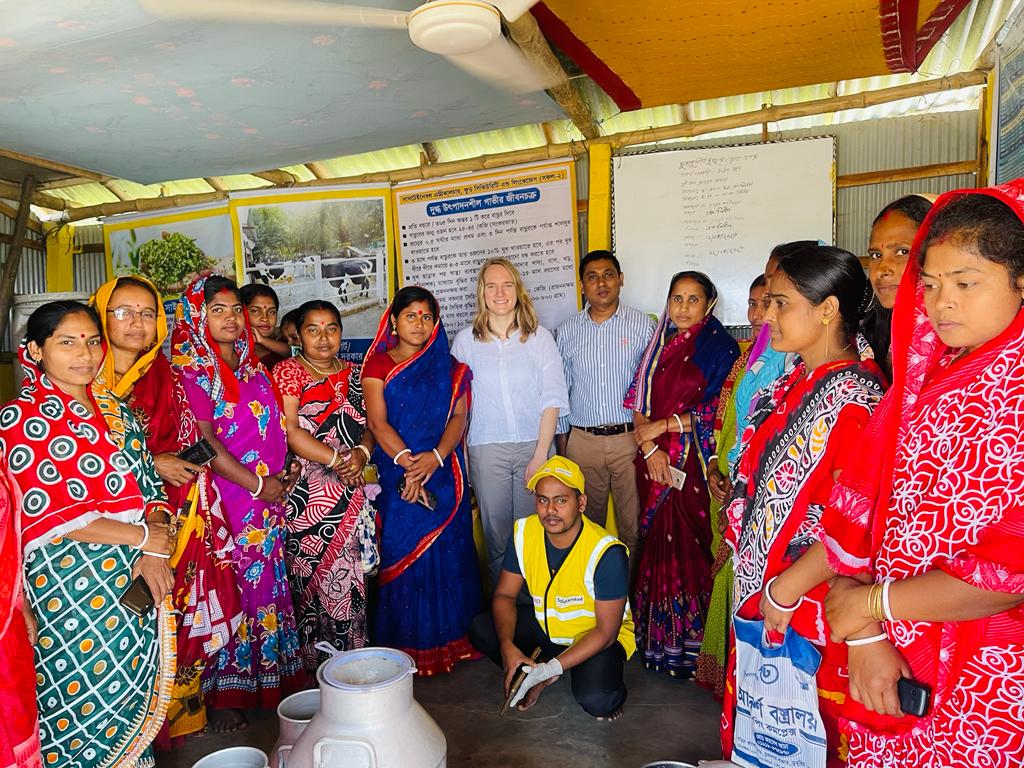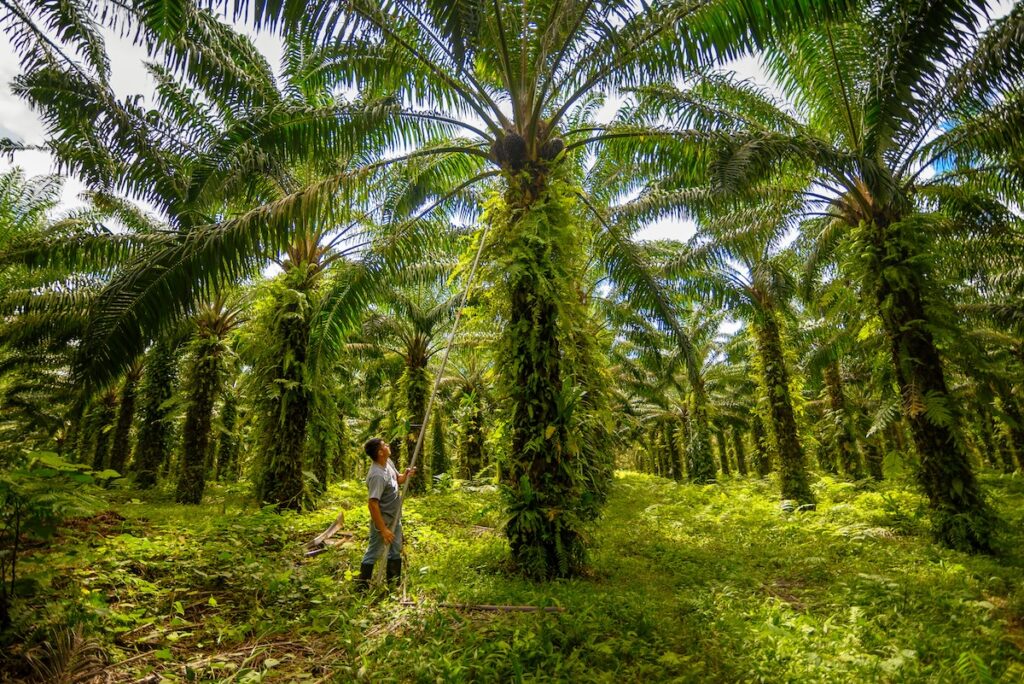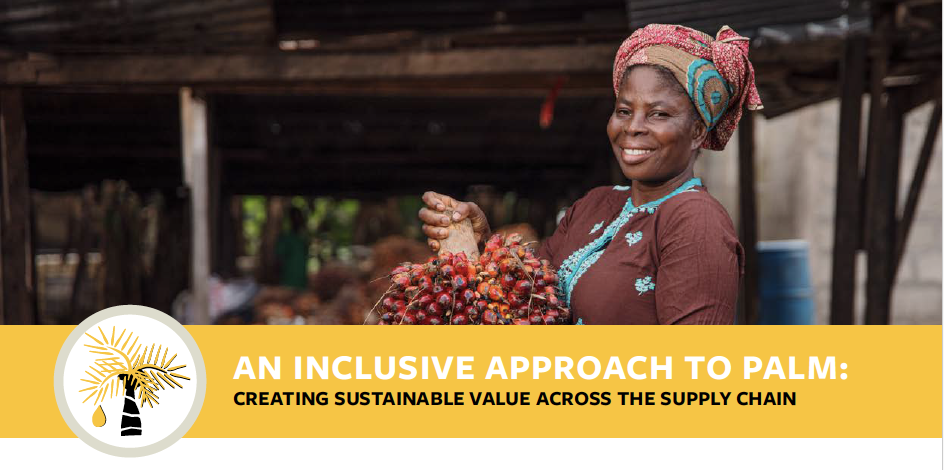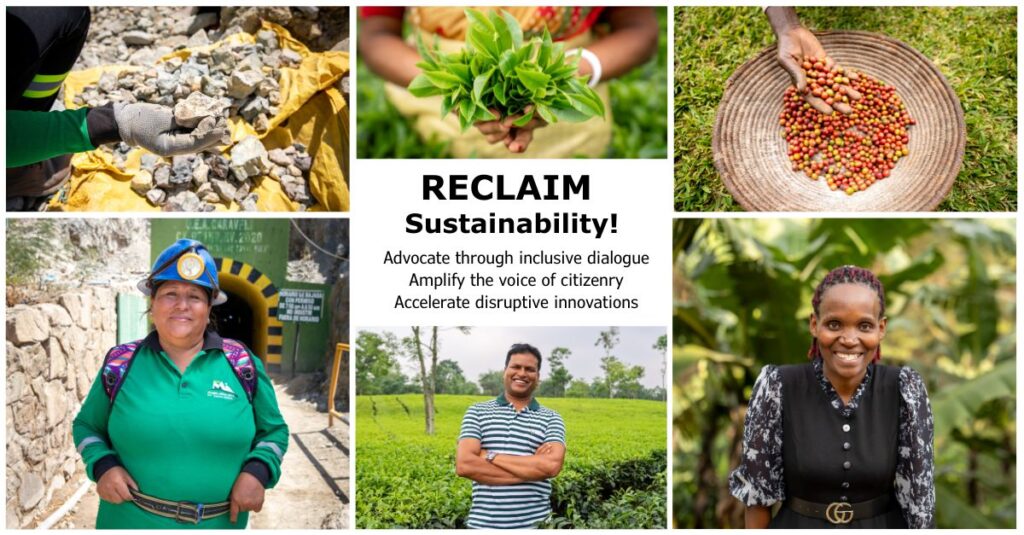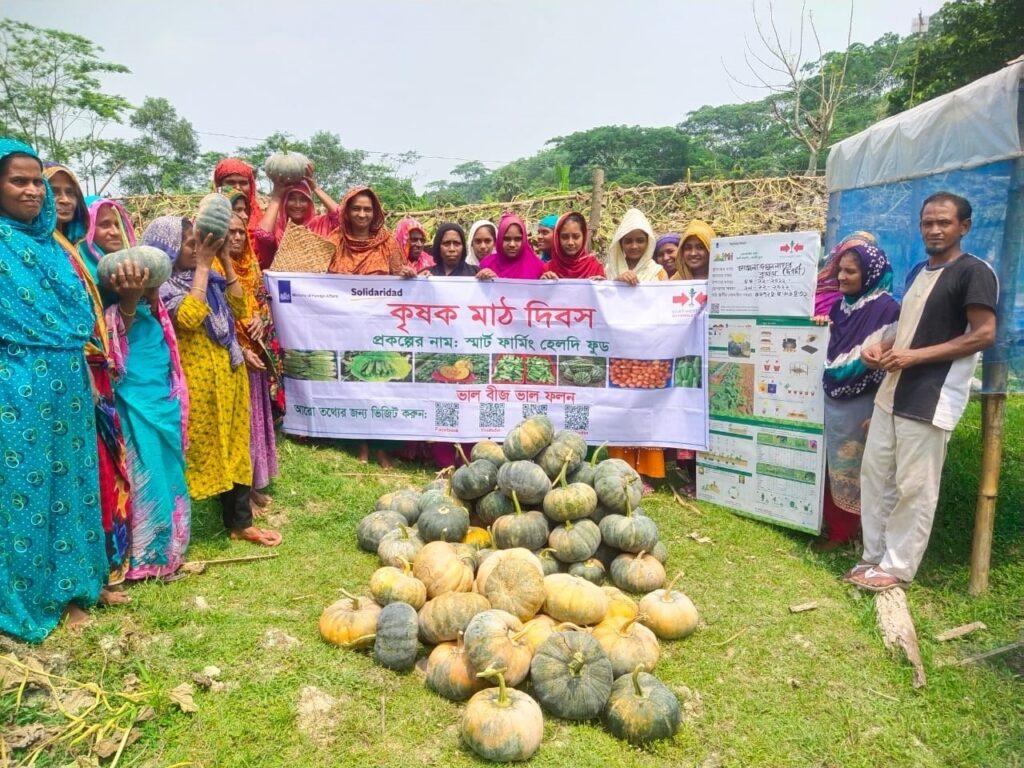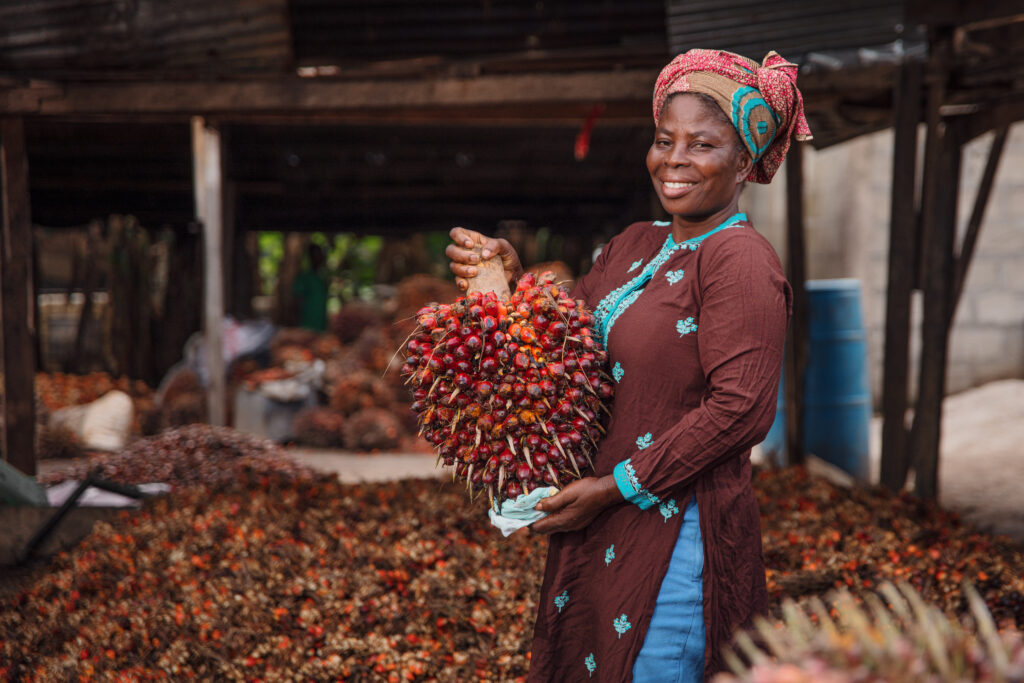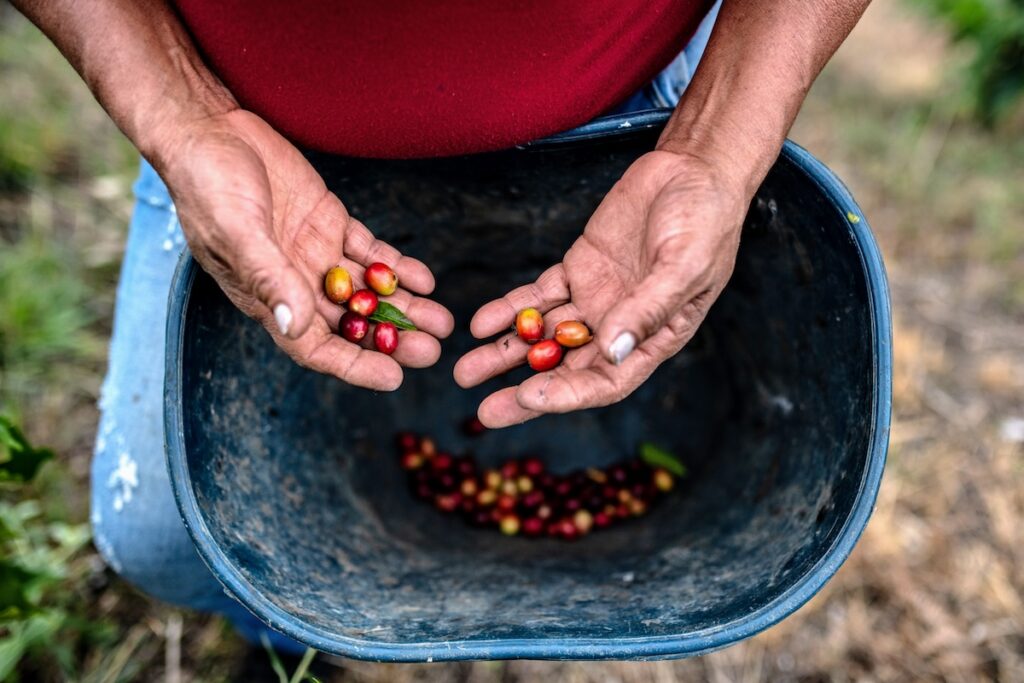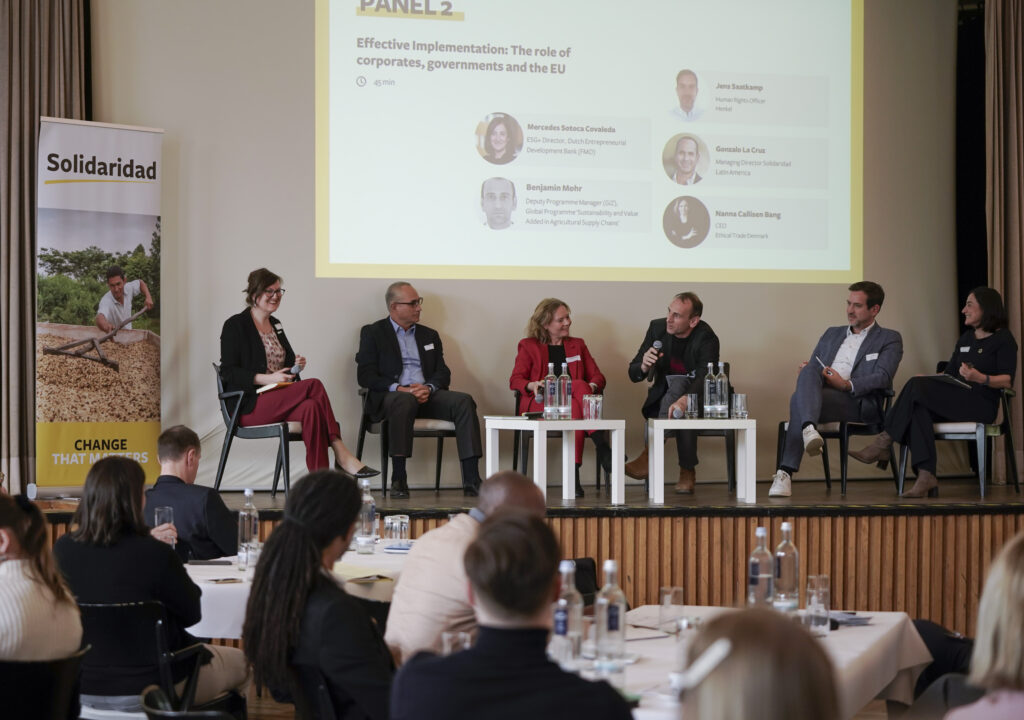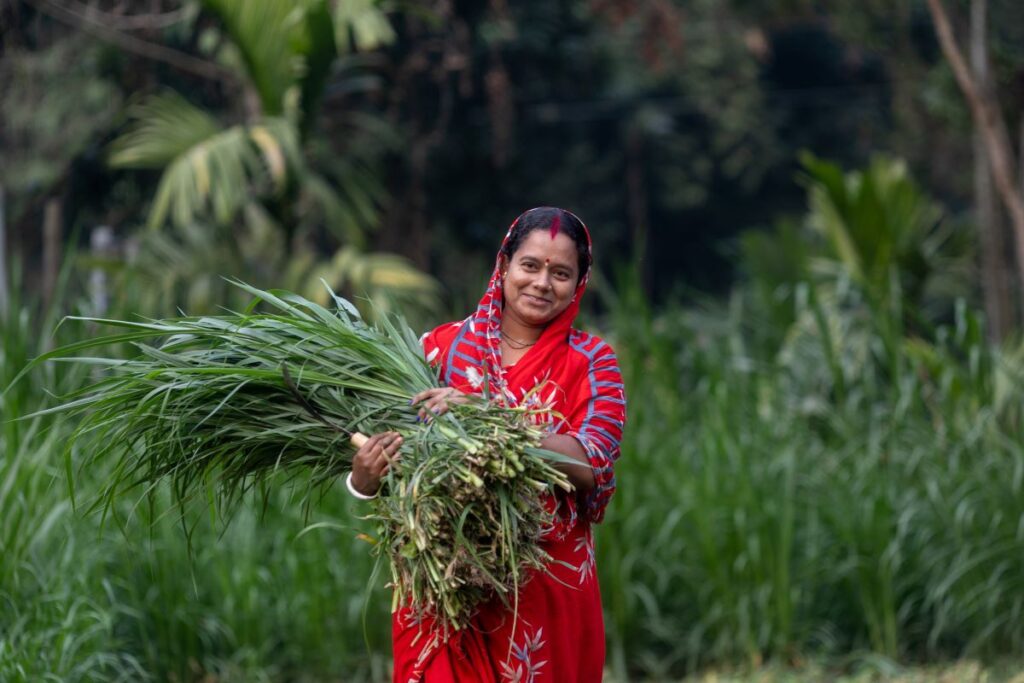Photo above: A group of female farmers aggregating their milk at a local milk aggregation centre; photo taken during a visit from a representative from Solidaridad Europe
During a project visit in April 2023, Solidaridad staff from our European office met with a group of dairy farmers from the Shovna dairy model village supported by Solidaridad in the SaFaL programme to learn about the capacity building this group of farmers received and how they benefited from it.
This new project, which began in January 2023 and is funded by the GSRD Foundation, will carry out capacity building sessions with female dairy farmers in the same district. The project will work both with farmers who were involved in the SaFaL programme as well as with newly identified participants; that is, 3,050 smallholder farmers (including 2,745 women) and 8 medium and small-scale enterprises.
Building on achieved impact
With the implementation of this project, Solidaridad is thus building on previously achieved impact to continue working towards a more sustainable and inclusive dairy sector in Bangladesh.
Our experience has also shown us that the dairy sector and farmers in Bangladesh are facing a number of challenges:
- Farmers are struggling to increase production of dairy to meet the increasing consumer demand;
- Livestock production in Bangladesh is facing management and climate vulnerability issues, which cause low milk yield per cow and additional emissions from cows;
- There is a lack of knowledge on eco-efficient farming practices;
- Women are managing a majority of dairy farming in Bangladesh, but they face challenges in access to knowledge and technologies for adopting good dairy farming; they typically also don’t have control over the money generated from farming due to persisting social norms;
- There is a need for better market uptake for future investments to improve productivity and quality.
During the project visit in April, the farmers indicated that the main challenge they face are high feed prices, which also limits their ability to own more cows and increase their produce. A group of female farmers told Solidaridad staff that the majority of them own two cows, while some have established farms with 18 cows.
With this project, we strive to foster the adoption of resource-efficient and climate-smart milk production practices and technologies customized for rural Bangladesh. The project will include knowledge transfer and capacity development for improved farm productivity, and the development of rural-urban distribution channels to enhance income and creation of jobs in the dairy supply chain. The participants of the new project will also be able to use the facilities established earlier by Solidaridad in the Dumuria district, such as the Village Super Market.
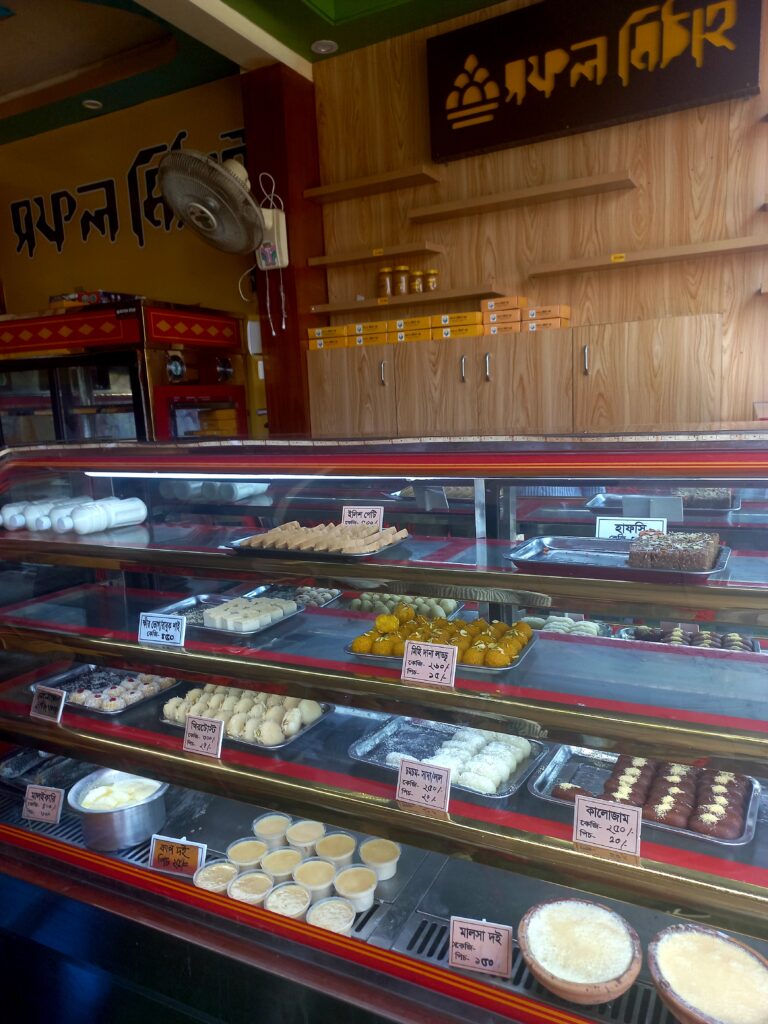
Use of digital tools to foster sustainable dairy
The use of digital applications is key for enhancing productivity and sustainable dairy production. During our visit to meet (potential) project participants and hear their stories, we visited a milk aggregation centre located close to several dairy farms. This proximity allows women farmers to aggregate their milk close to their homes rather than traveling long distances to larger aggregation points. The aggregation centre was established with the support from Solidaridad and is now run independently by an entrepreneur. The new project will support entrepreneurs running such milk aggregation centres and improve their business portfolio.
The milk aggregation centre also provides informational material on good dairy farming practices that the women can consult during their visit. The – predominantly female – farmers can register the milk they bring using the i2i app. This app allows farmers to register their profiles, their cattle profiles, and receive daily text messages about the quantity, quality, and price of milk they sell to the Milk Collection Centres. They also get regular text messages about the money owed to them by the collection centre. The payments are sent to their own digital wallets, so that they can access the money directly. The app can also be used with conventional phones, an important advantage as the majority of women use conventional phones, not smartphones.
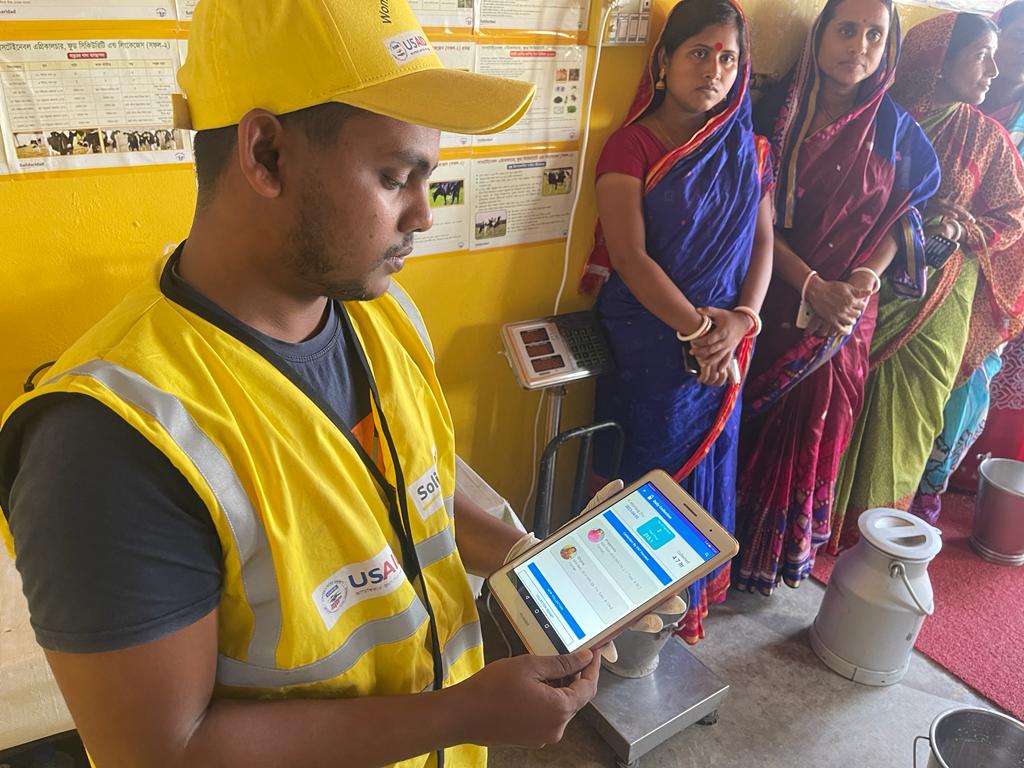
Supporting female dairy entrepreneurs
The majority of project participants are women, and one of the main objectives is to create an enabling environment where female farmers and entrepreneurs can make their own decisions about their finances and spending, and participate in the formal market to enhance their future economic and social conditions. We will also work to facilitate their digital inclusion and empowerment to further bridge the gender digital divide.
During the project visit in April 2023, a strong network and support among the women farmers were palpable, and these female farmers and entrepreneurs bring a lot of knowledge into the project. These women were very strong and confident about their work; however, they said that they still face challenges with being fully respected at the household level, despite all their work and contribution.
With such matters in mind, Solidaridad will conduct a gender analysis in this project to understand these issues better, and will organize trainings to sensitize men and boys. We will thus further scale our approach in implementing digital and financial inclusion to provide a platform for women dairy farmers in Bangladesh to empower themselves.
Are you interested in working with us, or to know more about this project? You can contact Charlotte Golly, Foundations Partnership Manager, at charlotte.golly[at]solidaridadnetwork.org
